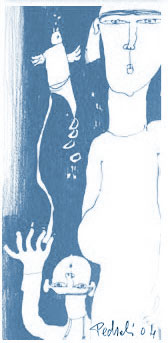Cryopreservation of pig granulosa cells: effect of FSH addition to freezing medium
| Cryopreservation of pig granulosa cells: effect of FSH addition to freezing medium Tirelli M, Basini G, Grasselli F, Bianco F, Tamanini C. Domest Anim Endocrinol. 2005; 28(1): 17-33. |
|
We cryopreserved swine granulosa cells by a slow cooling rate system; FSH was added to the freezing medium to test its effectiveness in protecting the cells. After thawing, proliferative activity, viability, steroidogenesis and apoptosis were tested; moreover, we determined heat shock protein (HSP70) production, to investigate the recovery from stress and superoxide dismutase (SOD) and catalase activity to evaluate a possible impairment of the antioxidant pathway. E2 production was enhanced by cryopreservation in particular with FSH; on the contrary, P4 production was inhibited by the freezing process in particular without FSH. Only the higher FSH concentration (10 ng/ml) stimulated steroid secretion in freshly collected cells; P4 production by cells cryopreserved in the presence and in absence of FSH was increased by both 5 and 10 ng/ml while the lowest concentration was effective in stimulating E2 production only when FSH was added to freezing medium. Freezing did not modify proliferative activity, while apoptosis was higher in frozen than in fresh cells. HSP70 production was lower in cells cryopreserved in presence of FSH, whose antioxidant metabolism was also conserved: SOD and catalase activities were similar to control. In conclusion, cryopreservation does not seem to markedly affect granulosa cells, in particular if they are frozen in presence of FSH; the gonadotrophin somehow improves their performances after thawing, probably stimulating E2 production and the antioxidant metabolism. |
|

